The Open Society Foundations work to build vibrant and tolerant democracies whose governments are accountable to their citizens. Open Society Foundations Community Youth Fellow, Adél Ónodi was the first trans woman to be featured as the cover model for Elle Hungary. Open Society Program Officer Katarzyna Pabijanek spoke with Ónodi about the experience, as well as her plans for the future.
What do you think is the significance of your appearing on the cover of a major women’s fashion magazine?
The opportunity to be featured on the cover of Elle Hungary means more and more people are open to the fact that trans women are women. It is a milestone, particularly in Hungary, where the current mood is anti-LGBTI, in both politics and culture.
You recently wrote and performed in your own one-woman theater show, Dear Future Me. What’s it about, and what inspired you to do it?
When I received a death threat after my transition in August 2017, I decided to go public with my being a trans woman. I always wanted to be an actress and a singer, but I felt that it was also a way I could help my community.
I want to be seen for who I am, and I want other people to know what we as trans people are all going through. Dear Future Me is a kind of fairy tale—the fairy tale genre has frequently helped me to process traumatic experiences—and it’s drawn from my imagination and memories. The show is told through a symbolic character named Iris, and it follows my journey from childhood to my life today.
You have achieved so much at a young age, but you have faced many challenges too. What do you hope will change, so that the next generation of trans people can have an easier time than you have?
I would like to see trans issues included in public education. I would also like to see more actions taken to reduce discrimination. For example, although discrimination based on gender identity is forbidden in Hungary, the police do not properly deal with hate crimes.
Sadly, Hungary’s current government has recently gone in the other direction by making it even harder for trans people to change their name and gender on official identity documents. Fortunately, though, there are organizations that deal with these issues—Transvanilla, to name one, has done a lot to support the trans community and to ensure that we’re involved at the decision-making level, too.
What new projects are on your horizon?
I would like to perform my one-woman show in front of as many audiences as possible in Hungary, and eventually abroad. And I would like to pursue my career as a singer and work on my own songwriting. I also have plans for a film and book. At the end of the day, though, I will always be an artist and activist who focuses on working with my community.
Right now, I am working on a magazine, created by myself and some other trans women, which is intended to provide a platform so that women from lots of different backgrounds—Roma, sex workers, activists, and people from rural communities—can tell their stories.
This article originally appeared on the Open Society Foundations website. It is part of an ongoing series presented in collaboration with the Open Society Foundations. In this series, we shed light on some of the most pressing global challenges and the work that is being done to address them. For more stories like this, go here.










